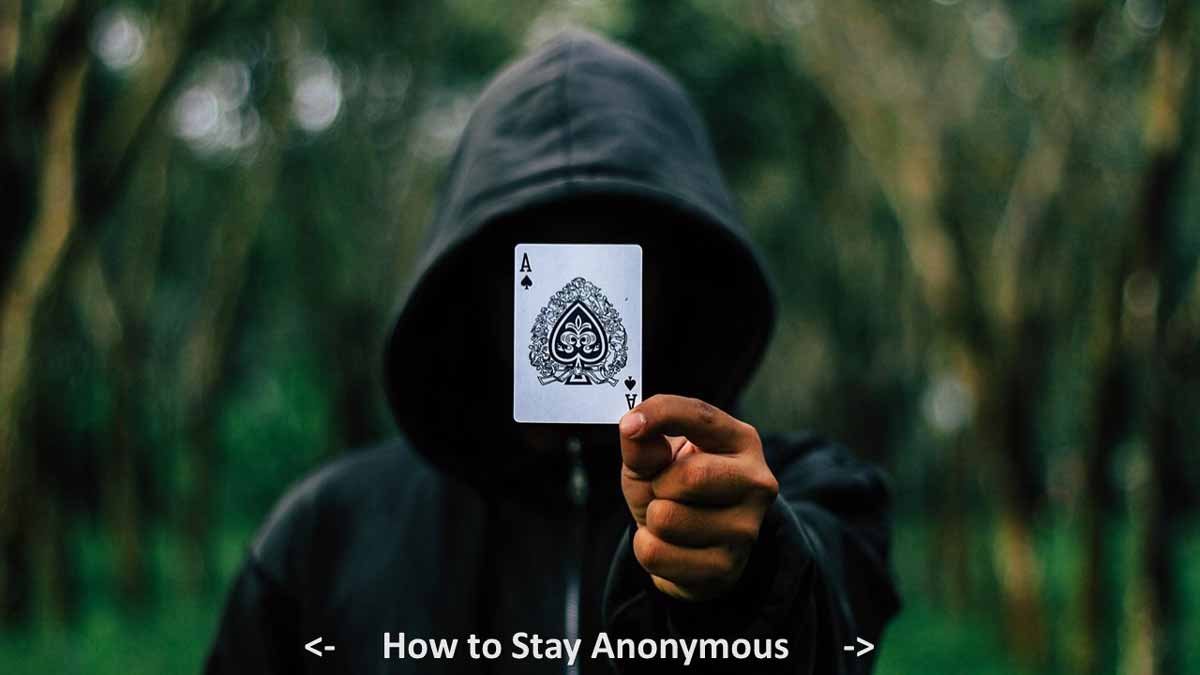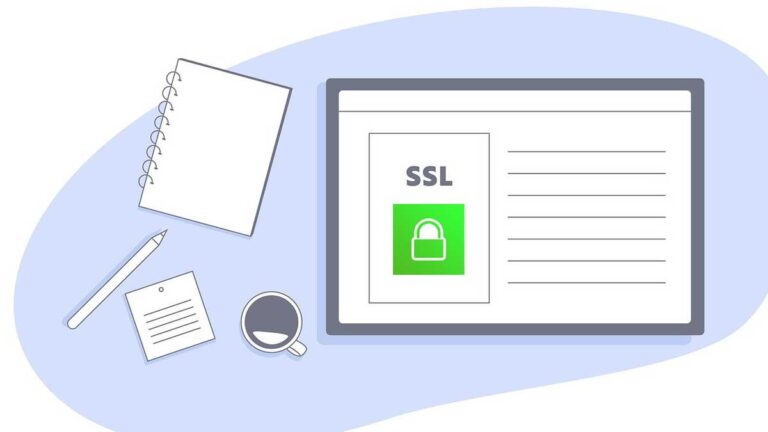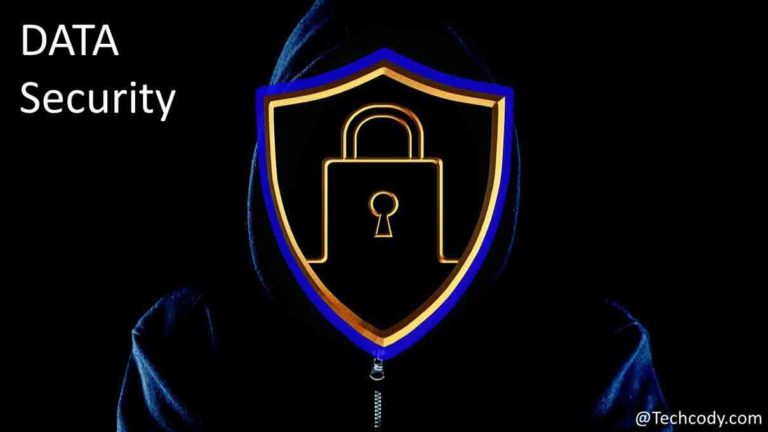How to stay Anonymous Online completely 100%: 13 Ways
How to be 100 percent anonymous online
Being anonymous comes with its benefits and gives certain freedoms, but it also demands sacrifice. The comfort zone of the modern web was largely created around profiling, tracking, and studying user behavior. Constant tracking may make you feel like you’re being continuously monitored, but you deserve online privacy. So you can take steps to protect your privacy while surfing online. So you need to know how to stay anonymous online completely.

Stay anonymous online completely
This article will outline those steps for you, along with the essential tools to help you.
Avoid Sharing Personal Information:
Before posting anything, actively consider what you are posting. Remember that once you publish something online, it becomes permanently available and can potentially be exploited against you. Protect yourself and your privacy by limiting the personal information on social media accounts. When engaging with social media, maintain a sharp awareness of the risks and exercise common sense.
Examples of social media risks include using easily guess-able passwords, sharing personal information without consent, and displaying contact details without getting prior approval. Additionally, it’s essential to learn the impacts of oversharing on social media. For instance, if someone shares a group picture on Facebook, sharing it further with others can expose them to potential danger.
Use a Virtual Private Network (VPN)
A virtual private network (VPN) encrypts all web traffic from browsers, unlike Tor. In addition, VPNs also hide your browsing history by preventing your ISP from accessing your online activities. Your traffic is encrypted on your local device until it reaches the VPN server. It is then decrypted before being forwarded to its destination. During this process, your activity is presently visible to the VPN provider.
A VPN provider runs a remote server that actively redirects your internet connection. Through this redirection, VPNs actively hide and change your internet protocol (IP) address, effectively rendering your online activities almost untraceable.
Use Tor Browser – Stay anonymous online
TOR is free and open-source software that enables users to stay anonymous online. It routes internet traffic through a network of volunteer servers or nodes located worldwide. The Tor browser, based on Firefox, allows you to bounce your data through multiple nodes, similar to proxy chains. Tor Browser surpasses the security levels of most browsers, effectively masking your identity and bouncing your data through three nodes. Using Tor is a specific and cost-free method to anonymize your traffic.
Webcam Cover
Take the active step of covering your webcam with tape to ensure your privacy. By doing so, your face won’t be visible, thus providing you with peace of mind. It’s a precautionary measure that offers reassurance, especially in cases where the camera is unintentionally activated, despite the presence of a light indicator on most laptops. The act of covering webcams has gained popularity in security circles over the past few years, with various options such as tape, Band-Aids, stickers, or dedicated plastic devices with sliding doors to uncover the camera lens when needed.
Disable Location Services
To prevent your activities from being tracked, take the active step of disabling geolocation services. Services like Google Maps can expose your device and personal information. Many applications seek permission to access your location, and it’s easy to unintentionally grant them access. You can rectify this by always disabling geolocation services in the settings. This action will bring you closer to enhancing your digitaTo prevent your activities from being tracked, take the active step of disabling geolocation services. Services like Google Maps can expose your device and personal information.
Many applications seek permission to access your location, and it’s easy to unintentionally grant them access. You can rectify this by permanently disabling geolocation services in the settings. This action will bring you closer to enhancing your digital security. For mobile phones, you can only hide your geolocation from the app developers, not from your cellular service provider.
Additionally, be aware using an Android device, the operating system itself may share your location independently. Depending on the device manufacturer, you may not have the option to disable this feature.l security. Additionally, be aware using an Android device, the operating system itself may share your location independently. By disabling location, you can stay anonymous online completely.
Use Pseudonyms:
Using a pseudonym online offers people several benefits. They can use pseudonyms to express themselves or explore different aspects of their identity actively. The decision to adopt a pseudonym is a personal choice that deserves respect. Some people opt for pseudonyms to protect their identity or maintain anonymity.
Pseudonyms serve various purposes, such as hiding one’s identity when engaging in online forums or simplifying the recall of names and identities. Moreover, authors, painters, and other creative individuals frequently employ pseudonyms to differentiate their creative work from their actual identities.
Secure Your Social Media Profiles:
To deal with this. you need to use social media management tools with customizable permission settings. This method allows your social media manager to create drafts using software access instead of directly accessing your actual profiles.
Certain software options enable you not only to manage permissions but also to approve content and closely monitor the content plan to control unauthorized postings. While sharing your life online can be enjoyable, void sharing your personally identifiable information such as your address, phone number, or Social Security number. Sharing sensitive data increases the risk of identity theft, especially if you haven’t used a theft protection service.
Regularly Clear Browser Cookies and Cache:
Cookies pose potential risks as they can track your online activity and collect personal information actively. They can also exploit vulnerabilities in your web browser or OS. To protect against these risks, it is advisable to frequently clear your browser’s cookies and cache. You can also use privacy extensions, and ensure your web browser and operating system remain updated with the latest security patches.
Additionally, exercise alerts when interacting with unfamiliar sources by refraining from clicking on links or downloading attachments without verification. Regularly deleting cache, cookies, and browsing history is important, particularly when using browsers like Firefox, Chrome, or any other browser.
Use Encrypted Messaging Apps:
To stay anonymous online, use an encrypted messaging app like Signal. It ensures all your communications have end-to-end encryption based on its open-source protocol. The app guarantees your messages and calls remain unseen by the company, and there are no ads or trackers involved.
In addition to email, it is essential to secure your tracks when sending messages and making calls. While encryption primarily focuses on privacy rather than anonymity. Encryption serves as a valuable tool in safeguarding your privacy, and it’s worth considering alongside other measures for maintaining anonymity.
Two-Factor Authentication (2FA):
Two-factor authentication or 2FA improves security by getting additional verification beyond just a password. Once you enter your password, it provides a second layer of confirmation. This typically involves inputting a second code, such as an OTP sent to your registered phone number or an auto-generated code from apps like Google Authenticator. Within the time allotted, it allowed you to enter the code to gain access.
2FA is significantly more secure than relying solely on a password, serving as a barrier against hackers attempting to enter your online accounts. Over time, it has appeared as an essential security measure to protect users. 2FA has proven to be the most robust method of protecting your accounts, as it is not easily bypassed.
Avoid Public Wi-Fi Networks:
Using public Wi-Fi networks is generally not suggested due to their inherent insecurity and exposure to hackers. If you need to perform private tasks, it is best to avoid connecting to a public access point altogether. Even if you come across an open network, it is important to verify its legitimacy for the specific location to ensure it’s not set up by hackers to steal data. Additionally, even if the wireless network is fair, there is a chance that an individual with suspicious intentions may be using a tool capable of intercepting all active traffic.
Use an Adblocker:
Digital marketers use tracking code implanted into webpages to track your PC or Mobile while you browse the internet. In addition, ad blockers also cover or remove multiple banner ads, pop-ups, and other online problems, delivering an extra benefit. Web browser plugins such as Adblock Plus, Ghostery, or uBlock Origin identify and block the loading of tracking code.
Educate Yourself: Stay anonymous online
Stay informed about current online privacy practices, new technologies, and potential risks. Educate yourself on best practices to enhance your anonymity on the internet. So stay Anonymous Online completely and 100 percent






